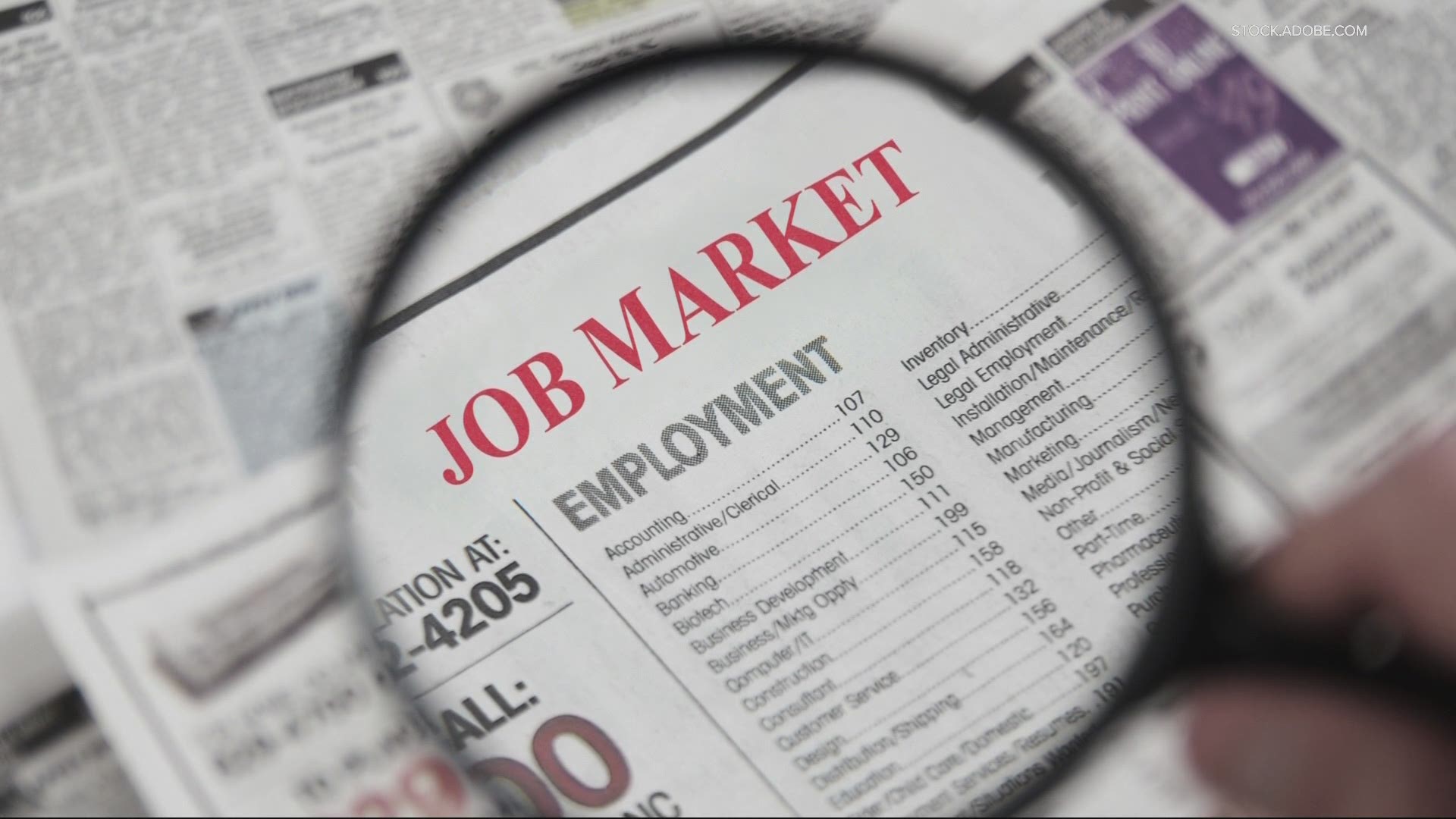PORTLAND, Ore. — It's not just restaurants. Most industries in Oregon — from manufacturing to caregiving, to trucking and banking — are struggling to find workers.
But the unemployment rate is still high. So what's going on and why is there a labor shortage?
While it's true a lot companies don't pay enough, this labor shortage goes beyond that. Businesses paying above minimum wage are having trouble hiring, including manufactured home builders which pay about $20 on average for assembly workers.
"We're working as quickly as we can to fill our backlog of orders. But it's going to require people," Oregon Manufactured Housing Association Director Ben Roche said. "It's a challenge. It's a real serious challenge."
Job openings are back at pre-pandemic levels. But as companies almost across the board try to hire, they can't fill positions.
"You can't just move people around. If you need a tech person and a waiter is laid off that, doesn’t do you any good," economist and consultant Bill Conerly said.
"Even though unemployment rate continues to climb specialized workers availability of them continues to decline," added Louisa Waldman, regional vice president with Robert Half.
Economists and hiring experts say Oregon's labor market has actually been tight for years, only growing tighter during the pandemic.
"Because of demographics of Baby Boomers retiring, a very low birth rate and very low immigration, we're going to have a tight labor market for the next decade," Conerly said.
One reason: Certain industries bounced back quicker than others as the economy reopened. They're now competing for the same type of worker.
The tight market leads to competition, meaning higher wages and better benefits.
"There are less workers available than there are jobs available for those workers in certain sectors," Waldman added. "Demand is high and supply is low and we've seen that driving up local wages."
But industries hit hard — like entertainment — can't stretch much more.
"We're already looking at what can we offer to these employees to make sure we're able to continue maintaining our business without running the business out of business," Starplex Crowd Management Services (CMS) Administrative Manager Ken Pierce told KGW.
Businesses blame expanded unemployment insurance and stimulus payments. Some Oregonians make as much or more by not working.
"As we increase our wages to try to be competitive with other industries to draw those workers to our place of employment, then we're competing with people who are considering unemployment as a career choice," Roche said.
Right now, some economists say job creation outpaces job searches.
"When things are not tight there are people who are willing to work but they're going to wait for the best job offer, their ideal job offer. And because it's hard to find that ideal job there are jobs going begging," Conerly said.
Another big reason people left and haven't come back: they're still needed at home. Many parents with kids learning from home or who can't get back into daycare have to stay with them.
COVID concerns changed and cut back the labor force. Some people worry about getting sick at work.
That's why Conerly says vaccinations will help the economy as much as anything else.
Economists say once expanded unemployment benefits expire and schools open up more, people will go back to work. But inflation and slow growth are now inevitable.

